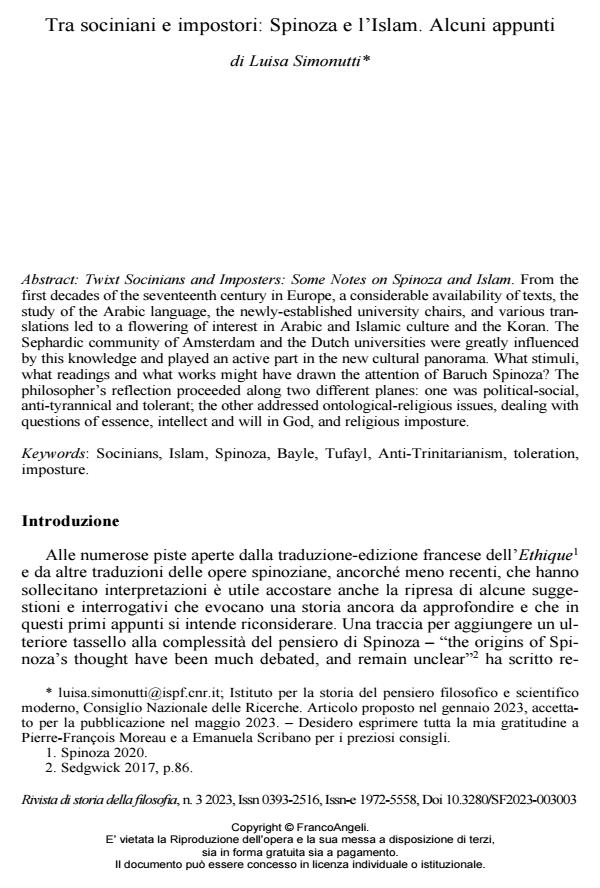Tra sociniani e impostori: Spinoza e l’Islam. Alcuni appunti
Titolo Rivista RIVISTA DI STORIA DELLA FILOSOFIA
Autori/Curatori Luisa Simonutti
Anno di pubblicazione 2023 Fascicolo 2023/3
Lingua Italiano Numero pagine 26 P. 382-407 Dimensione file 210 KB
DOI 10.3280/SF2023-003003
Il DOI è il codice a barre della proprietà intellettuale: per saperne di più
clicca qui
Qui sotto puoi vedere in anteprima la prima pagina di questo articolo.
Se questo articolo ti interessa, lo puoi acquistare (e scaricare in formato pdf) seguendo le facili indicazioni per acquistare il download credit. Acquista Download Credits per scaricare questo Articolo in formato PDF

FrancoAngeli è membro della Publishers International Linking Association, Inc (PILA), associazione indipendente e non profit per facilitare (attraverso i servizi tecnologici implementati da CrossRef.org) l’accesso degli studiosi ai contenuti digitali nelle pubblicazioni professionali e scientifiche.
From the first decades of the seventeenth century in Europe, a considerable availability of texts, the study of the Arabic language, the newly-established university chairs, and various tran- slations led to a flowering of interest in Arabic and Islamic culture and the Koran. The Sephardic community of Amsterdam and the Dutch universities were greatly influenced by this knowledge and played an active part in the new cultural panorama. What stimuli, what readings and what works might have drawn the attention of Baruch Spinoza? The philosopher’s reflection proceeded along two different planes: one was political-social, anti-tyrannical and tolerant;; the other addressed ontological-religious issues, dealing with questions of essence, intellect and will in God, and religious imposture.
Parole chiave:Socinians, Islam, Spinoza, Bayle, Tufayl, Anti-Trinitarianism, toleration, imposture.
Luisa Simonutti, Tra sociniani e impostori: Spinoza e l’Islam. Alcuni appunti in "RIVISTA DI STORIA DELLA FILOSOFIA" 3/2023, pp 382-407, DOI: 10.3280/SF2023-003003